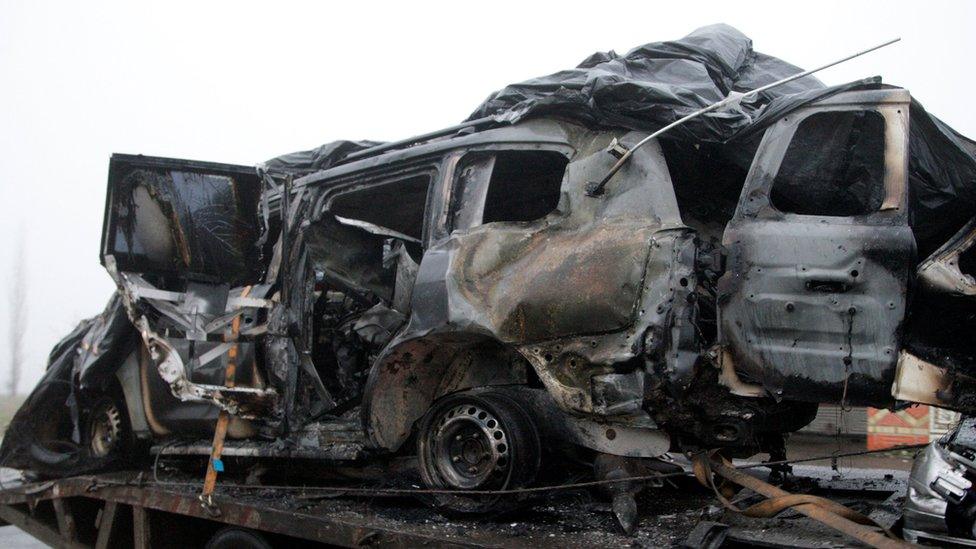Ukraine's Poroshenko to block Russian social networks
- Published
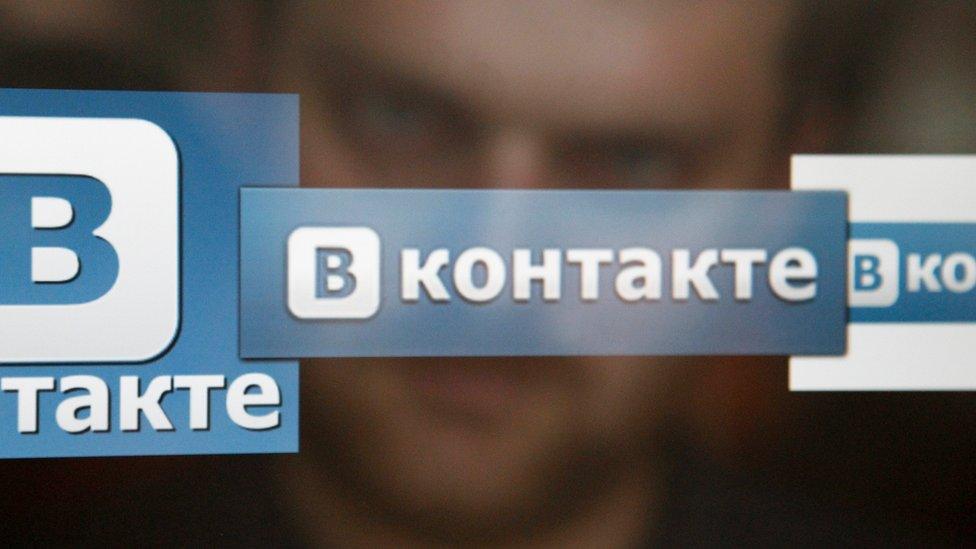
VKontakte alone is thought to have some 15 million users in Ukraine
Ukraine's President Petro Poroshenko has imposed a ban on Russia's biggest social media networks and internet services popular with millions.
His decision is a significant ramping up of sanctions on Ukraine's neighbour for its annexation of Crimea and the continuing conflict in eastern Ukraine.
Those targeted include social networks VK.com and Odnoklassniki, search engine Yandex and the Mail.ru email service.
Ukrainian service providers have been ordered to block access to the sites.
The companies' offices in Ukraine will also face asset freezes and other restrictions although it was not immediately clear how the ban on the services would come into force and whether Ukraine had the technical means to enforce it.
The president's decision to push through a decision by Ukraine's national security council could prove controversial domestically, as VK (VKontakte) alone has an estimated 15 million users in Ukraine and Odnoklassiki (which translates as Classmates) is also widely popular.

Censorship or a good move? By BBC Monitoring
Blogger Anton Hodza hailed the ban as a "fantastic opportunity" for Ukrainian start-ups, while another joked that Ukraine's authorities should prepare for riots from angry schoolchildren and pensioners.
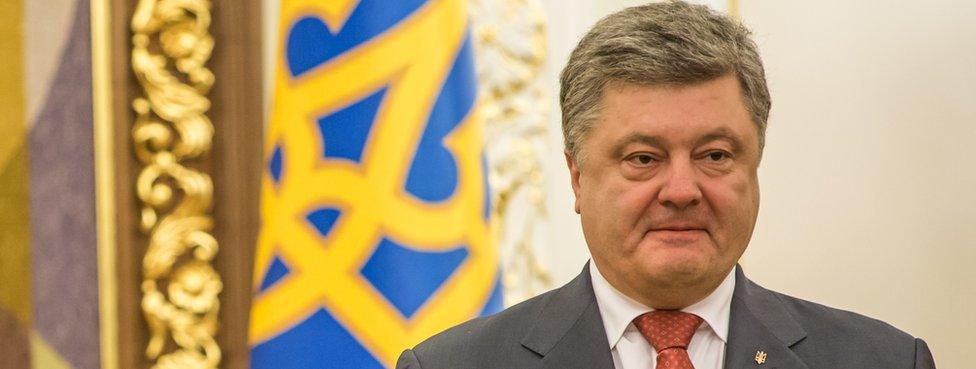
The Ukrainian president himself uses some of the sites he has banned
But IT expert Artur Orujaliev condemned the move as censorship and journalist Oksana Romanyuk from Reporters Without Borders said the economic reasons used to justify the ban were actually economic sanctions against Ukrainians.
Tipichnyy Kiev, a news community with 695,000 subscribers on VK, offered practical advice to its readers to either use mirror sites on Facebook, Twitter or Instagram and promised help in using proxy servers.

Several other Russian companies also face sanctions, including cyber-security company Kaspersky Lab, Doctor Web, and Aeroflot, as well as several TV companies including NTV and RT and news agency Ria Novosti.
The sanctions row led to Russia's Eurovision contestant, Julia Samoilova, was unable to travel to Kiev because she had performed in Crimea. Ukraine has gradually broadened its sanctions list, which now includes more than 1,200 individuals.
Why Ukraine imposed sanctions
When Ukraine's President, Viktor Yanukovych, was deposed in 2014, Russian troops moved into Crimea and the government in Moscow annexed the Ukrainian peninsula.
Conflict broke out in eastern Ukraine as pro-Russian separatists launched an insurgency against the government in Kiev. Since the conflict began, some 10,000 people have died.
A tentative ceasefire is in place but there are regular violations and 13 people were killed last month, mainly by shelling or landmines.
The European Union and US imposed sanctions on a number of Russian companies and individuals linked to the Russian involvement, and Moscow responded with its own measures.
- Published14 April 2017
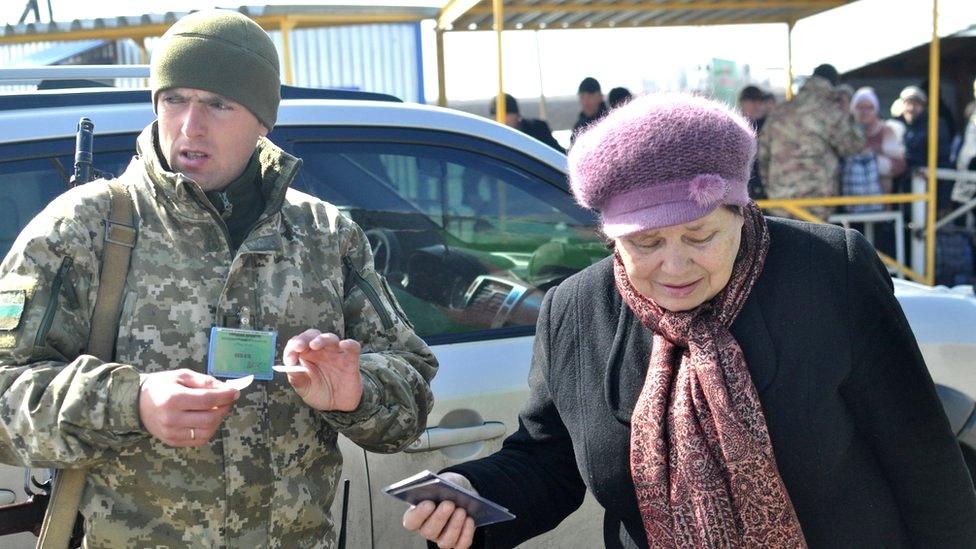
- Published19 February 2017
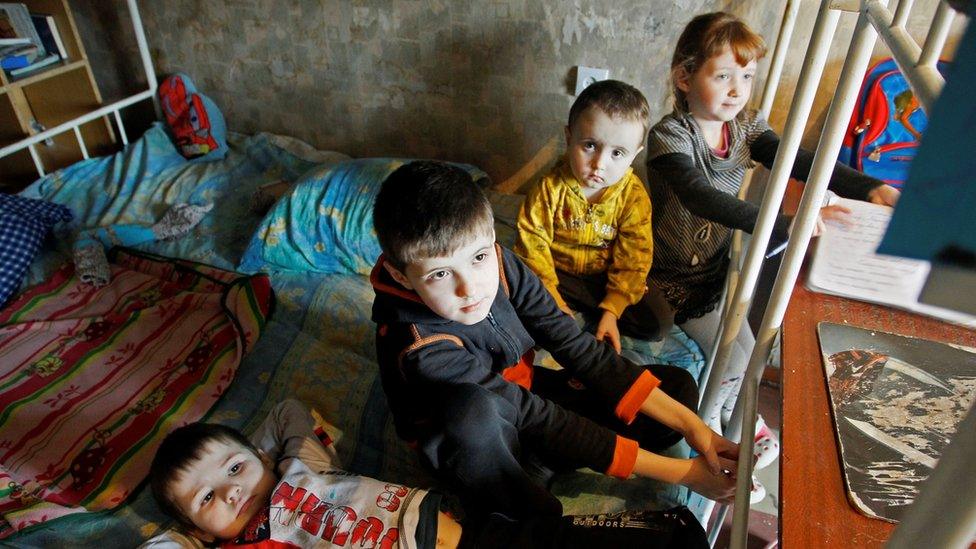
- Published24 April 2017
